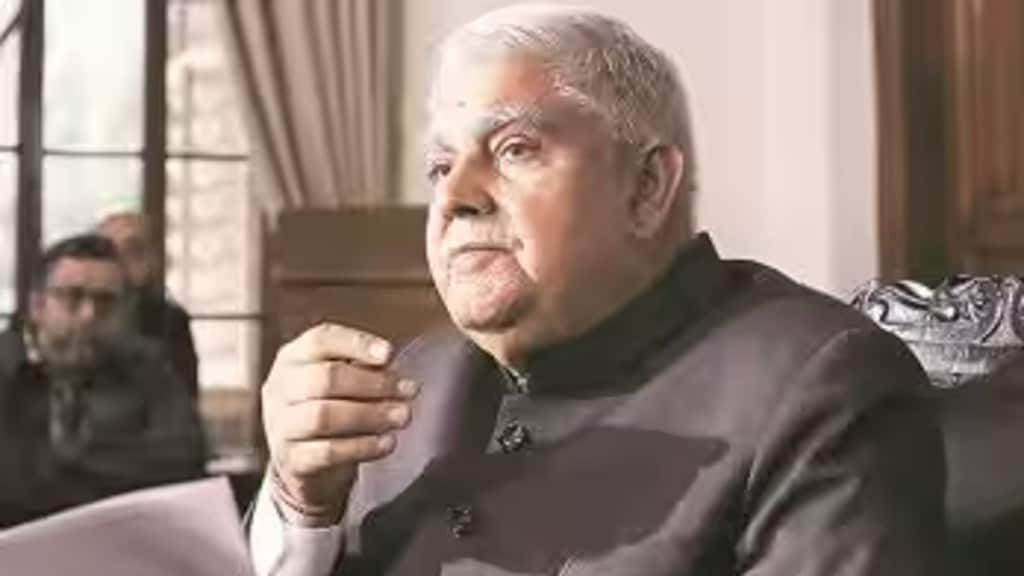Vice President Jagdeep Dhankhar delivered an address on Monday, stressing the transformative power of education. “Education is the most effective mechanism to bring societal change.” Dhankhar said. He called upon educational institutions to be catalysts for change, emphasising that this can only be achieved through innovation, research and thinking outside the box.
During an interaction with faculty members and students at Cotton University in Guwahati, he underlined, “Education is the most potent medium to even out inequalities and to combat inequities.” Dhankhar firmly stated, “If we manage to have quality education, other things will fall in place.”
The Vice President asserted that India’s rise is unstoppable and the world is taking notice of its growth. “Our Amrit Kaal is our Gaurav Kaal because we are on a path that is in accordance with our civilisational ethos,” he said. He pointed to India’s recent historic achievements, such as landing on the moon’s south pole and its presidency of the G20 and highlighted the country’s economic progress, moving from one of the Fragile Five economies to the fifth-largest economy in the world in the last decade. Dhankhar emphasised that India’s voice is now being heard on the global stage, with those who used to advise India now seeking its counsel. He added that India’s rise might be hard to digest for some, who are willing to tarnish the country’s institutions. Therefore, he urged everyone to counter such narratives and take pride in their nation’s accomplishments.
Dhankhar noted that an ecosystem has been created to help individuals realise their full potential, with ample opportunities available for the youth. “You have to only take the first step, and the system will help you, ” he added. He also highlighted that government policies are in place to support the realisation of dreams.
The Vice President mentioned the significant transformation in power corridors, which have been cleansed of power brokers and corrupt middlemen, with ordinary citisens benefiting the most from these changes. Dhankhar advocated for economic nationalism, questioning the use of precious foreign exchange on items like kites, lamps, candles, toys, curtains, and furniture. He called for a shift towards supporting local products, saying, “I would appeal to everyone, especially our industry and businesses, that this approach for small monetary gains is not good for our country. If every Indian pledges to follow economic nationalism, he or she will contribute immensely to Bharat’s economy.”
Dhankhar also stressed the responsible utilisation of natural resources, regardless of an individual’s financial capacity. He questioned why fiscal power should determine the usage of resources like water, electricity, and petrol.
Discussing the National Education Policy 2020, the Vice President said, “It is not degree-oriented, it’s knowledge & skill-oriented. This is a big change.” He referred to students as the “warriors of 2047” and highlighted their role in shaping India’s future as it celebrates the centenary of its independence.
Dhankhar praised Cotton University for producing several illustrious alumni, including many Chief Ministers, and suggested that they convene biennial alumni meetings to engage them in giving back to society.
Assam Chief Minister Himanta Biswa Sarma also emphasised the role of educational institutions in fostering new ideas and the need to impart education in emerging fields like Quantum Computing and Artificial Intelligence. The event was attended by notable dignitaries, including Gulab Chand Kataria, Governor of Assam, Ranoj Pegu, Education Minister of Assam, Ramesh Chandra Deka, Vice-Chancellor of Cotton University and other dignitaries.
WIth inputs from ANI.

